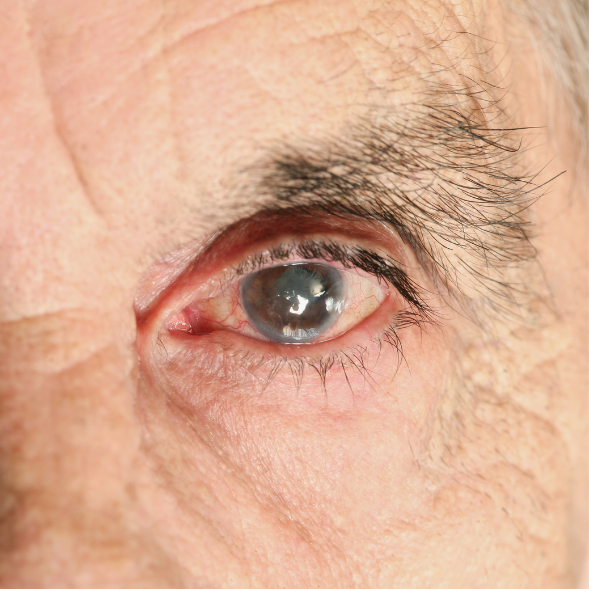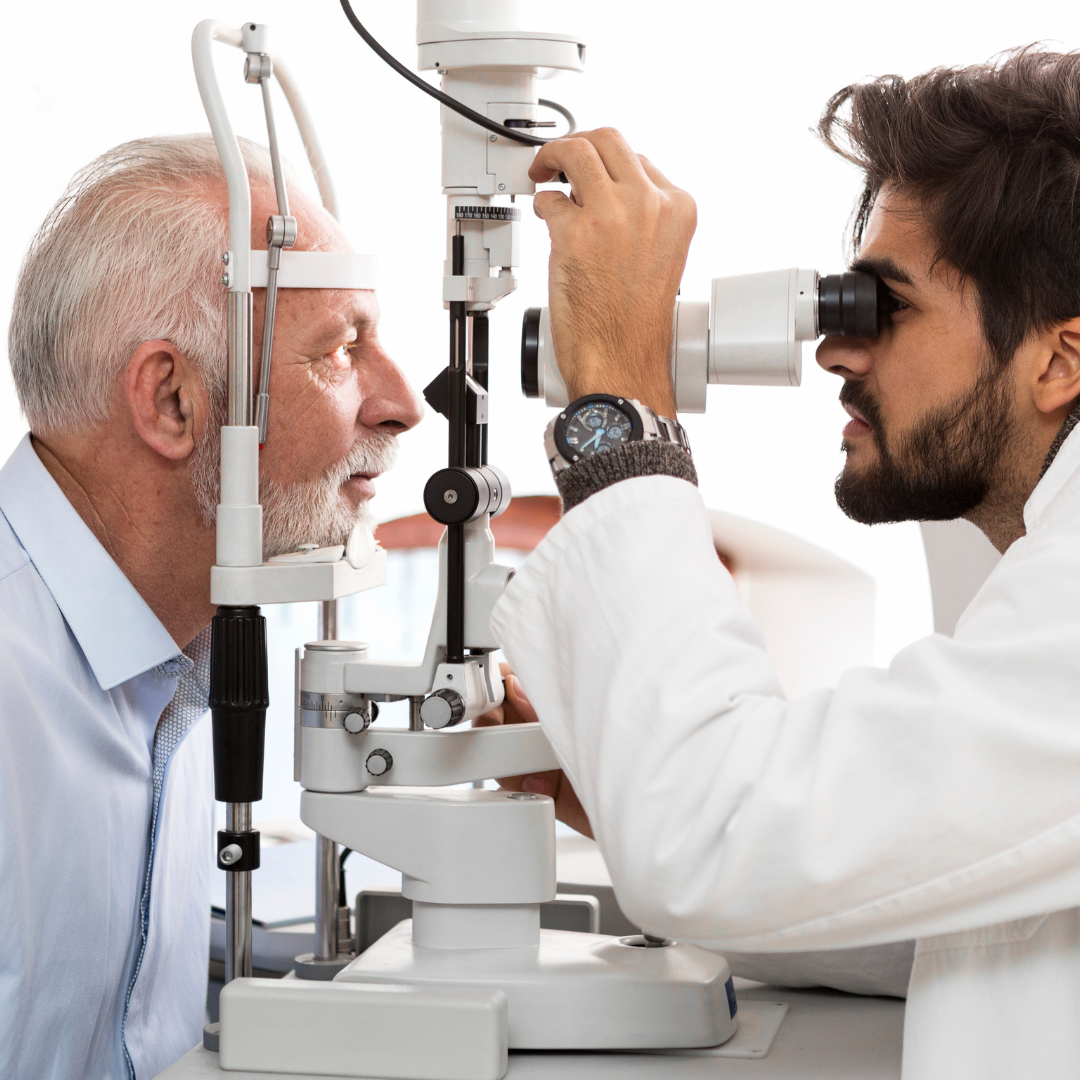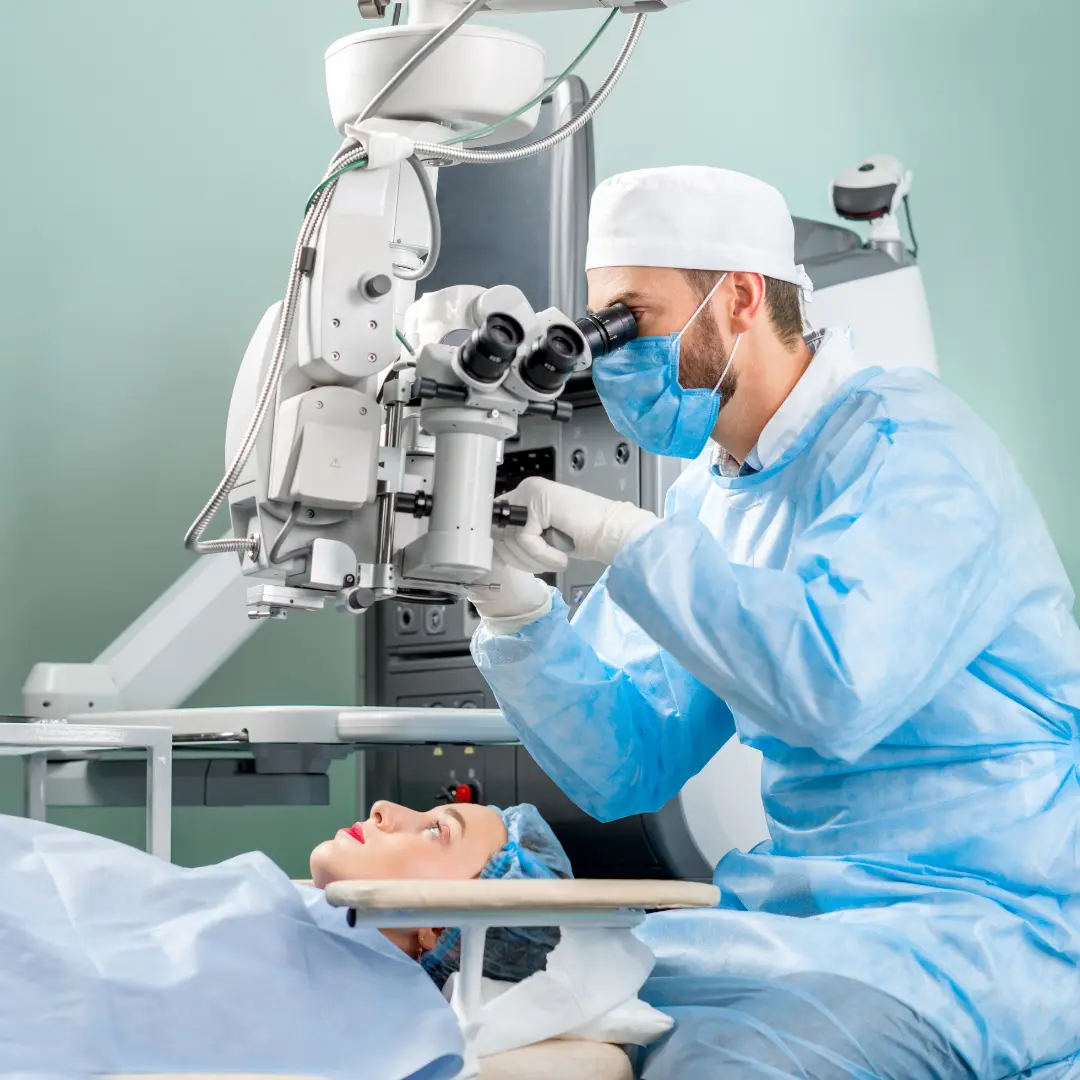As you age, your eyes age with you. This is no surprise as your body goes through a lot of change with age. Age-related eye conditions, like cataracts, are extremely common. In fact, about half of all people over the age of 80 have cataracts or have had cataract surgery. Almost everyone who lives into their 60s develops at least mild cataracts. Cataracts, which can cause blindness if left untreated, are essentially unavoidable.
Today, cataracts are easily treatable through cataract surgery. Many patients are able to go back to living their normal lives quickly after cataract surgery, and some even experience vision better than before they had cataracts!

Inside everyone’s eye is a lens. Just like with a camera, the lens of the eye helps you to focus on things whether they are nearby or far away. To work well, the lens must be clear. As you age, the lens of your eye gradually becomes cloudy. This can happen as a result of the proteins that make up the lens starting to break down. This cloudy lens is called a cataract. This clouding causes blurry vision.
Looking through a cloudy lens is like looking through a dirty window: everything is blurred and foggy. But as you continue to get older, the cataract gets more and more cloudy. At that point, the only way to restore your vision is to remove the cataract.
As you age, your eyes age with you. This is no surprise as your body goes through a lot of change with age. Age-related eye conditions, like cataracts, are extremely common. In fact, about half of all people over the age of 80 have cataracts or have had cataract surgery. Almost everyone who lives into their 60s develops at least mild cataracts. Cataracts, which can cause blindness if left untreated, are essentially unavoidable.
Today, cataracts are easily treatable through cataract surgery. Many patients are able to go back to living their normal lives quickly after cataract surgery, and some even experience vision better than before they had cataracts!



Cataracts are only treatable through surgery, and no amount of medicated eye drops or changes in diet can reverse them. Luckily, cataract surgery is extremely safe and effective, and does not require a lengthy hospital stay or recovery. Cataract surgery is the most common surgical procedure performed on adults in the United States. The procedure is performed on an outpatient basis, generally takes a half-hour or less, and recovery time is usually only a few days.

1
First, the surgeon removes your cloudy lens. Next, a new lens implant is inserted into your eye. The cloudy lens is removed with a tiny instrument that enters your eye through a small incision, usually one-eighth of an inch or smaller. They will then gently break the cataract into tiny pieces and remove them from the eye with a miniature vacuum cleaner.

2
Once the cataract is out, you will need a new lens in order to focus after surgery. Artificial lens implants, made of plastic like materials, are used to restore your ability to focus after surgery. These implants, called intraocular lenses or IOLs, come in many different strengths, like glasses, and before your cataract operation, your doctor will perform several measurements to determine the appropriate lens implant strength for your eye.

3
Most people see better within a day or two after cataract surgery, but it is not abnormal or worrisome if your vision seems blurry for a few weeks after surgery as your eye heals. Your doctor will prescribe some eye drops for the healing period after surgery, and if you need new glasses after surgery, these will be prescribed for you once your eye is completely healed, usually about a month after surgery.
Cataracts cannot grow back, but sometimes a thin cloudy membrane grows behind the lens implant, making your vision blurry like the cataract did. This is not uncommon it happens to roughly 40 percent of patients having cataract surgery. If it happens to you, a quick and simple laser treatment can be performed in the office to make a hole in the membrane for you to see clearly through.
"*" indicates required fields
Family Eye Physicians is one of the premier chicagoland ophthalmology practices dedicated to offering superior eye care services to protect and improve the vision quality of our patients. We strive to provide this by utilizing the most clinically relevant procedures and state of the art technology. more.